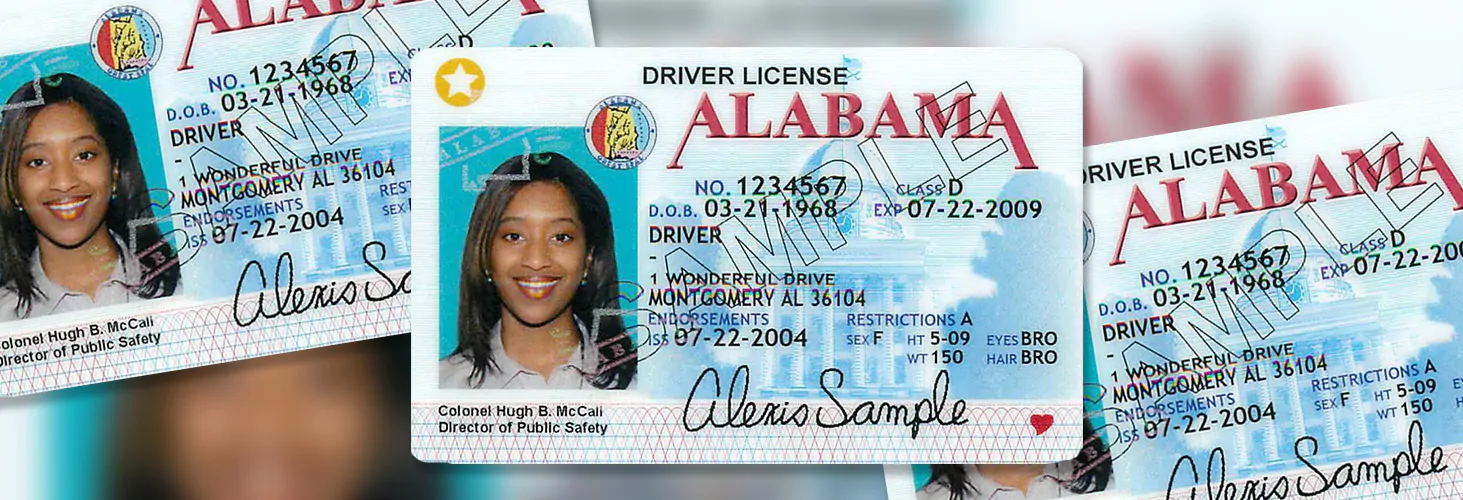By Brandon Moseley
Alabama Political Reporter
Wednesday, December 28 2016, US Department of Transportation Secretary Anthony Foxx announced that USDOT had reached an agreement with the Alabama Law Enforcement Agency (ALEA) to ensure that driver licensing services in the state will be available to all residents, regardless of race, color or national origin, in compliance with Title VI of the 1964 Civil Rights Act. This follows a twelve month investigation by USDOT.
Sec. Foxx said, “The US Department of Transportation took on this issue as part of our responsibility under Title VI to prevent discriminatory behavior, and I’m pleased to have reached this agreement with the State of Alabama.”
Sec. Foxx said, “DMVs play a critical role in the day-to-day functioning of the American people, including ensuring their ability to drive to work and other essential services and to get proper identification needed to vote or open a bank account. No one should be prevented from accessing these services based on their race, color or national origin — Title VI is not optional.”
The USDOT investigation revealed that African-Americans residing in the State’s Black Belt region were disproportionately underserved by ALEA’s driver license services, causing a disparate and adverse impact on the basis of race, in violation of Title VI.
The Associate Director of the Departmental Office of Civil Rights Yvette Rivera said, “Today’s agreement between USDOT and ALEA is intended to correct this violation by guaranteeing that driver licensing services will be available to all Alabama residents on an equitable basis without regard to race, color or national origin.” The USDOT’s Departmental Office of Civil Rights conducted the investigation.
Under the agreement, ALEA will ensure that Alabama residents are not, directly or through other means, underserved by ALEA’s driver licensing programs on the basis of race, color or national origin. The agreement also establishes a working relationship between USDOT and ALEA for ensuring that the state’s driver licenses services continue to comply with Title VI in the future.
Specifically, ALEA agreed to: expand the hours of operation for district and field driver license offices throughout the Black Belt region; appoint a Title VI coordinator who will be responsible for the development and operation of ALEA’s Title VI program, as well as for the provision of Title VI training to ALEA’s staff; prepare and submit a Community Participation Plan within 90 days to achieve robust community participation throughout all stages of the planning and decision-making processes for ALEA’s programs and activities in connection with licensing services to ensure that communities are informed about potential impacts, that they have meaningful input into the process, and that ALEA officials hear and consider diverse views; and submit any proposed modifications to field office hours or driver’s license services to USDOT for prior approval.
Last year when USDOT announced an investigation into the closure of Alabama driver license offices, Alabama Governor Robert Bentley dismissed the investigation as, “An ongoing attempt to politicize a resolved issue,” and accused President Barack Obama and former Secretary of State Hillary Clinton of politicizing the situation.
Gov. Bentley said then, “In an ongoing attempt to politicize a resolved issue, the United States Department of Justice informed my office Tuesday of an impending investigation by the United States Department of Transportation (USDOT) that is in its early stages and no findings have been made. Due to legislative budget cuts, in September 2015, the Alabama Law Enforcement Agency (ALEA) reallocated driver license examination personnel back to the district drivers license offices on a full time basis. Prior to this budget decision, these examiners, who are state employees, were traveling to each county level probate office or courthouse once or twice a week to provide the service of examination. I made the decision in October 2015 to ensure that an examiner report to each county level office at least once a month to continue providing this service.”
Gov. Bentley continued, “Despite what the Obama Administration claims, there were no driver license offices closed in Alabama. Despite facts to the contrary, opportunistic politicians such as Hillary Clinton have politicized an Alabama budgeting issue to serve their own agenda, going so far as to travel to our state for the sole purpose of political pandering. This USDOT investigation is nothing more than a weak attempt to embarrass the people of Alabama and exploit our state in the name of a political agenda. I am confident that the USDOT investigation will find no basis for the claims of discrimination. It is time for the Obama Administration and aspiring national politicians to listen to facts, stop wasting taxpayers’ dollars and put the political agendas away.”
In January 2015, the Alabama Law Enforcement Agency (ALEA) announced that it was going to dramatically increase the cost of getting a driver’s license in Alabama. ALEA raised the fee without getting approval from the legislature. Efforts by State Senator Bill Holtzclaw (R-Madison) to make ALEA give back the money were blocked in the State Senate.
At the time, Gov. Bentley had demanded that legislators give him $700 million in new taxes for the state general fund (SGF) and vowed to punish the districts of legislators who tried to block his plans. The legislature refused, so the Governor called two special sessions over the course of that summer. Ultimately the Republican leaderships caved in to some of Bentley’s demands and agreed to raise taxes on cigarettes, pharmacies, and nursing home beds; though the pharmacy tax later had to be rescinded after the US Department of Health and Human Services (HHS) rejected the measure. Even with the pharmacy tax that generated only $66 million a year and was a far cry from what the Governor claimed that the state needed at the time. ALEA did not get the money that they requested. Instead it was level funded at 2015 levels, the money that ALEA took by raising the driver’s license fees was used to offset cuts in their General Fund appropriation.
Former ALEA Director Spencer Collier responded by cutting the 34 rural driver’s license offices. Rural counties, many of them majority-Black were most impacted. Most political insiders do not think that this decision was motivated by race, but rather was political payback to Democratic legislators (many of them representing rural, majority Black counties) for opposing Bentley’s massive tax increase package. Democrats had joined with conservative Republicans to oppose the tax increases.
As a result, many rural residents (many of them Black) now were 70 or 80 miles from a driver’s license office. The driver’s license is also the most common form of photo ID used to vote in Alabama. Democrats were already opposed to photo ID requirements to vote because they claim that Blacks and Latinos are less likely to have a photo ID than White people are. The combination of a photo ID requirement and the closure of the offices led to some charges of voter suppression by the Bentley Administration. The State denied that but the move ultimately led to the USDOT investigation as the state is a recipient of billions in federal highway funds and is prohibited by law from using those highway dollars to promote any form of racial or ethnic discrimination.





















































